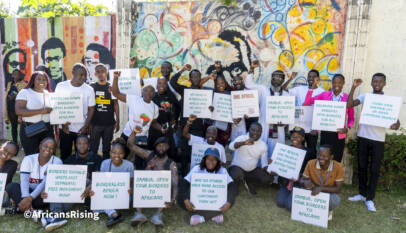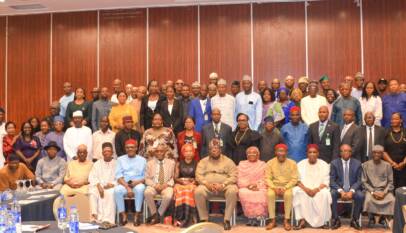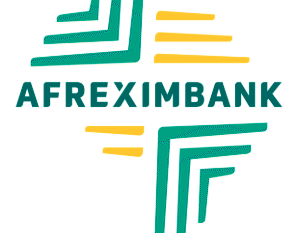EXPLAINER | How Nigerian Governments, Businesses Can Navigate Climate Finance Puzzle
Nigeria’s worsening floods, desertification, and rising sea levels underscore why climate finance is more than funding—it is a lifeline for survival and resilience.

Climate change is reshaping economies and societies worldwide, and Nigeria, Africa’s largest economy and most populous country, is not immune. Rising temperatures, flooding, and erratic rainfall patterns are already undermining food security, livelihoods, and infrastructure.
In 2022, Nigeria witnessed one of the most devastating floods in its history, displacing over 1.3 million people, destroying farmlands, and damaging infrastructure across 33 states. In the north, desertification continues to eat deep into arable land, while rising sea levels threaten Lagos and other coastal communities.
To respond effectively, Nigeria requires substantial climate finance—funds specifically earmarked for mitigation and adaptation projects. Yet, despite the urgency, accessing these funds remains one of the country’s most pressing challenges.
Nigeria faces a staggering climate finance gap. While tracked investments reached only US$2.5 billion in 2021/22, the country requires about US$27.2 billion annually through 2030 to meet its climate goals. Weak state-level capacity, limited capacity to develop bankable projects, and investor concerns over policy and fiduciary risks continue to block access—leaving community-level adaptation efforts critically underfunded.
Globally, developed countries pledged under the Paris Agreement to mobilize US$100 billion annually in climate finance for developing countries. Negotiations are now moving toward a new collective target of up to US$300 billion annually beyond 2025. For Nigeria, which has committed to net-zero emissions by 2060, climate finance is the engine that will drive adaptation, renewable energy, and green infrastructure.
Despite these pledges, Nigeria—like many African nations—faces steep barriers to securing its fair share. The country’s ability to attract and effectively utilize climate finance will determine whether it can deliver on its climate commitments while safeguarding vulnerable communities.
This explainer breaks down how Nigeria’s governments and private sector can navigate the climate finance puzzle.
Understanding Climate Finance and Its Significance
Climate finance refers to financial flows directed to climate-related projects such as renewable energy, climate-resilient agriculture, sustainable transport, and green infrastructure. These funds come from both public sources—multilateral climate funds, bilateral donors, or national budgets—and private sources such as commercial banks, impact investors, and green bonds.
Under the UN Framework Convention on Climate Change (UNFCCC), developed countries pledged to mobilize US$100 billion annually for developing countries. Although this target remains unmet, the principle is clear: finance is central to global climate justice.
For Nigeria, access to these funds is not just about meeting emission reduction targets. It is about financing flood defenses, combating desertification, supporting farmers with climate-smart agriculture, and ensuring cities like Lagos withstand sea-level rise.
Expert Perspectives on Cracking the Climate Finance Puzzle
Ifeanyi Ugwuoke, National Team Leader for the Partnership for Agile Governance and Climate Engagement (PACE), which builds the capacity of Nigerian subnationals and businesses to access climate finance, believes the government’s role is central to unlocking these funds.
“Government is central to all of this. PACE works at the crossroads, making the connectivity between how government works, the decision-making process, and how Nigeria responds. If Nigeria is going to respond, it is the government that will mobilize the entire citizenry, businesses, and all of that, and be at the forefront of mobilizing. Regulation comes from the government.”
Ugwuoke explains that PACE has been helping subnational governments test a Climate Finance Readiness Assessment tool, which has been piloted by 11 states, diagnosing gaps in governance structures and financial systems needed to meet international funding requirements.
“The idea of the readiness assessment is to enable states to assess their capability to access climate funds. They are available, but conditionalities are attached. You must show systems that can deliver eco-friendly businesses, solar farms, recycling, or clean energy. You have to identify issues, implement recommendations, and then apply for funds tied to bankable projects,” he said.
However, Ugwuoke admits readiness remains low: “The baseline data is absolutely low. Our target is that if states faithfully implement recommendations, we’ll see a 30–50 percent increase in readiness by year-end. But as of now, it’s still a lot of work.”
Despite these gaps, he emphasizes the significance of the climate financing opportunities available for subnationals like Jigawa State to include, namely, concessional loans for both flood control and desertification management.
“If you are building things like solar panels, if you are recycling, if you are generating electricity and all of those things, it all has to be eco-friendly. Because the target is what? The environment. Imagine investing in a solar farm that empowers a community without a single emission. That community’s economy changes completely,” the PACE lead said.
On the private sector dimension, Ugwuoke noted: “The private sector fund is higher because that’s where the business is—the business of manufacturing, solar panels, hydroelectricity. There are investors who have their money ready, and the portfolio is large.”
The Fiscal Puzzle: Constraints and Opportunities
Basil Obasi, the PACE Programme’s Public Finance Management (PFM) Advisor, highlights Nigeria’s fiscal constraints: “Climate finance presents an interesting opportunity. The fact is that governments—both federal and subnational—grapple with dwindling fiscal space challenges. Ever-growing public expenditure commitments amid dwindling revenue mean climate action competes with health, education, and infrastructure for resource allocation.”
Yet, Obasi says climate finance provides an opening: “By mainstreaming climate considerations into key sectors, states can make expenditures climate-responsive and unlock additional funds.”
For businesses, the PFM expert outlines two clear benefits of climate finance: “First, access to funds for innovations that support emission reduction and adaptation. Second, it opens new areas of investment opportunities that are eco-friendly, new trading opportunities and new sources of livelihood that are aligned with the just transition agenda.”
Yet, Obasi underlines that although there is willingness on the part of governments and green businesses to unlock climate finance, technical capacity remains a major barrier. “The resources exist; people are just not aware of the systems and processes to tap into them. Once interest is shown, systems are available to support technical capacity development.”
To address this, PACE and partners are offering technical support—from readiness assessments to strengthening public financial management systems and meet fiduciary standards.
Federal Pathways to Accessing Climate Finance
The federal government is the gateway to most international climate funds. Nigeria is eligible for the Green Climate Fund (GCF), the Global Environment Facility (GEF), and the Adaptation Fund.
To access these, subnational governments must submit bankable proposals—often through accredited entities like the National Council on Climate Change (NCCC), Development Bank of Nigeria (DBN) and United Nations Development Programme (UNDP). In 2021, for example, Nigeria secured US$10 million from the GCF for a climate-resilient agriculture project in northern states.
Nigeria is also exploring innovative mechanisms such as debt-for-climate swaps, where creditors forgive part of external debt in exchange for green investments. Countries like Pakistan and Belize have successfully used this tool.
State Governments: Opportunities and Constraints
While the federal government leads national negotiations, state governments implement climate projects on the ground. Many, however, lack the expertise or institutional frameworks to directly access funds.
Some states are moving forward. Lagos has launched a Climate Action Plan (CAP) aligned with global targets, boosting its credibility with donors. Kaduna has partnered with development partners to fund renewable energy and agricultural resilience projects.
Other states could follow by issuing domestic green bonds or creating climate change funds. Yet the absence of specialized climate finance units or trained proposal writers remains a serious barrier. Strengthening subnational capacity is critical.
Pathways for Businesses and the Private Sector
The private sector is indispensable in climate finance—both as investor and beneficiary. Nigerian businesses can:
- Decarbonize operations and access international climate markets.
- Apply for financing through instruments like the Sustainable Energy Fund for Africa (SEFA).
- Attract venture capital, as Africa’s climate-tech sector grows.
- Partner in PPPs for renewable energy, waste-to-energy plants, and green infrastructure.
Such partnerships can blend public grants with private investments, lowering risks and expanding impact.
Step-by-Step Approach to Unlock Climate Finance
Securing climate finance requires rigorous preparation. Nigeria must:
- Align projects with national priorities such as the Nationally Determined Contributions (NDCs) and the National Adaptation Plan.
- Engage accredited entities early (e.g., AfDB, UNDP, NCCC, DBN for GCF; UNDP, UNEP, FAO for GEF).
- Demonstrate fiduciary standards and transparent governance systems, using tools like the PACE Readiness Assessment.
- Prepare robust proposals (Concept Notes for GCF, Project Identification Forms for GEF).
- Ensure inclusivity by consulting women, youth, indigenous groups, and civil society.
- Show co-financing commitments from state budgets, banks, or investors.
Approved projects face strict safeguards and monitoring requirements. Success stories—whether solar mini-grids or flood management systems—will enhance Nigeria’s credibility and access to future tranches.
Financing Nigeria’s Green Future
Nigeria’s path to climate resilience hinges on its ability to access and deploy climate finance effectively. This requires overcoming barriers of weak institutions, limited awareness, and governance challenges.
The opportunities are immense: green bonds, renewable energy, adaptation funds, sustainable agriculture, and biodiversity protection. If Nigeria can build a transparent, innovative, and business-friendly climate finance ecosystem, it can unlock billions of dollars, strengthen resilience, and position itself as a leader in Africa’s green transition.
Climate finance is not a donor-driven agenda—it is a pillar of national development. With political will, technical readiness, and collaboration across government, business, and civil society, Nigeria can turn the climate financing puzzle into a roadmap for sustainable prosperity.














